
-
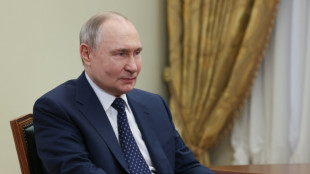 Putin orders three-day truce amid new US warnings
Putin orders three-day truce amid new US warnings
-
Real Madrid's Ancelotti agrees Brazil deal - reports
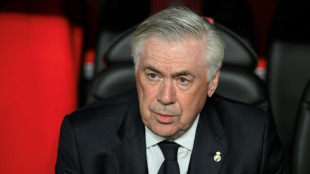
-
 ChatGPT adds shopping help, intensifying Google rivalry
ChatGPT adds shopping help, intensifying Google rivalry
-
Global stocks mixed amid trade hopes as markets await tech earnings
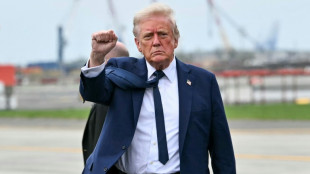
-
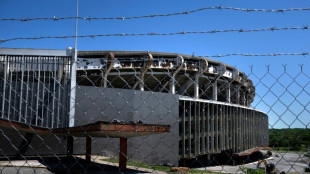 Commanders heading back to D.C. after inking $3.7 bln stadium deal
Commanders heading back to D.C. after inking $3.7 bln stadium deal
-
US warplane falls off aircraft carrier into Red Sea

-
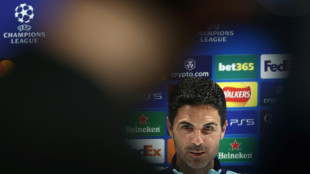 Feisty Arteta urges Arsenal fans to 'bring boots' to PSG Champions League clash
Feisty Arteta urges Arsenal fans to 'bring boots' to PSG Champions League clash
-
Bucks blow as Lillard suffers ruptured Achilles: reports
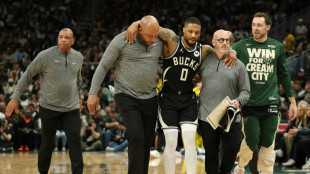
-
 No power, no phone, no transport -- Spain in a panic
No power, no phone, no transport -- Spain in a panic
-
US warplane went overboard into Red Sea: Navy

-
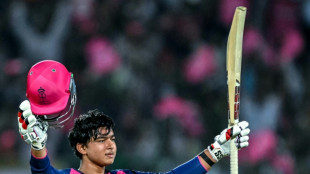 'Like a dream' as IPL's 14-year-old Suryavanshi becomes youngest to hit T20 ton
'Like a dream' as IPL's 14-year-old Suryavanshi becomes youngest to hit T20 ton
-
Luis Enrique says PSG have improved since October Arsenal loss
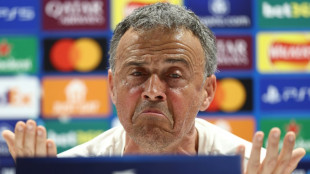
-
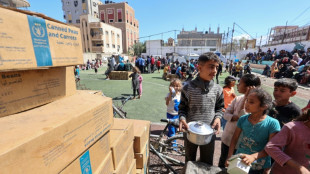 UN food, refugee agencies warn of huge cuts after funding losses
UN food, refugee agencies warn of huge cuts after funding losses
-
Trump trade war dominates BRICS meeting in Brazil
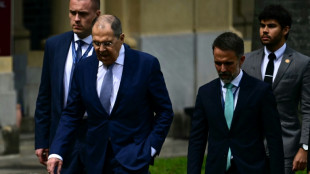
-
 Rashford expected to miss rest of Aston Villa season
Rashford expected to miss rest of Aston Villa season
-
IPL's 14-year-old Suryavanshi youngest to hit T20 ton as Rajasthan rule
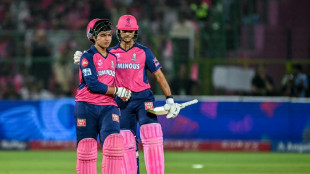
-
 Halle Berry, Jeremy Strong to join Cannes film festival jury: organisers
Halle Berry, Jeremy Strong to join Cannes film festival jury: organisers
-
Klopp congratulates Liverpool on Premier League triumph
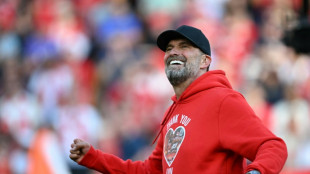
-
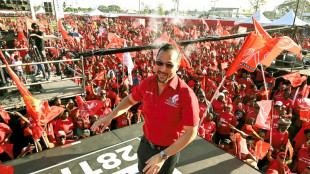 Violence-weary Trinidadians vote in general election
Violence-weary Trinidadians vote in general election
-
Abuse scandal in focus in search for new pope
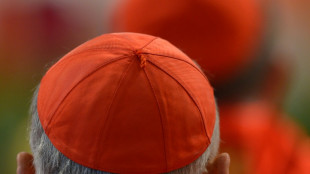
-
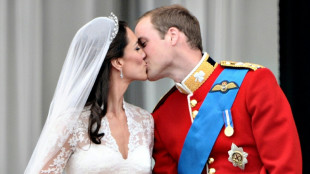 Prince William and Kate mark wedding anniversary in Scotland
Prince William and Kate mark wedding anniversary in Scotland
-
Amazon set for launch of Starlink-rival satellites

-
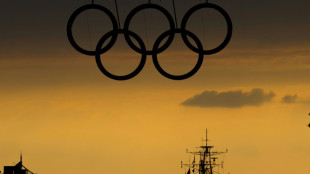 London mayor Sadiq Khan targets Olympic history for city
London mayor Sadiq Khan targets Olympic history for city
-
Stock markets diverge amid trade hopes, ahead of earnings
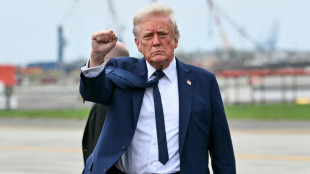
-
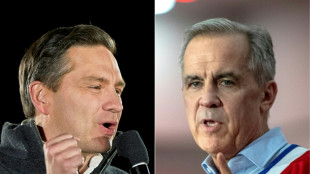 Canada votes as Trump renews US takeover push
Canada votes as Trump renews US takeover push
-
Massive blackout hits all of Spain and Portugal

-
 Conclave starts May 7, cardinals say new pope must tackle abuse
Conclave starts May 7, cardinals say new pope must tackle abuse
-
BRICS ministers meet in Brazil over Trump trade policies
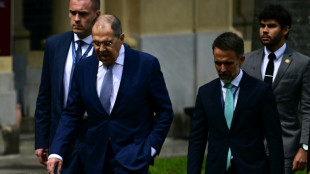
-
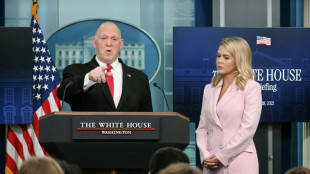 Trump escalates immigration crackdown to mark 100 days
Trump escalates immigration crackdown to mark 100 days
-
Outkast, White Stripes, Cyndi Lauper among Rock Hall inductees
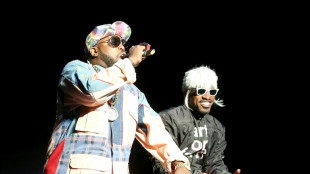
-
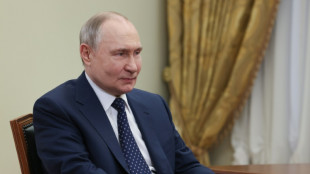 Putin orders three-day truce in May but Ukraine asks 'Why wait?'
Putin orders three-day truce in May but Ukraine asks 'Why wait?'
-
Eubank Jr discharged from hospital following boxing grudge match
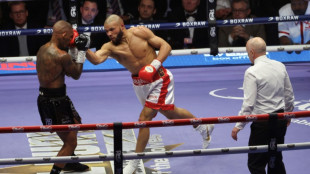
-
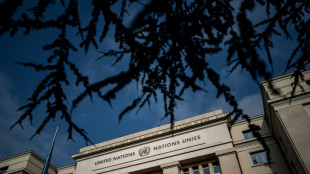 China deploys army of fake NGOs at UN to intimidate critics: media probe
China deploys army of fake NGOs at UN to intimidate critics: media probe
-
Empty shelves? US Treasury secretary not concerned 'at present'
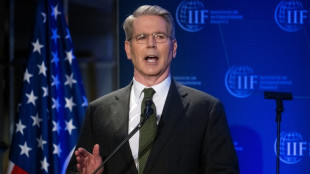
-
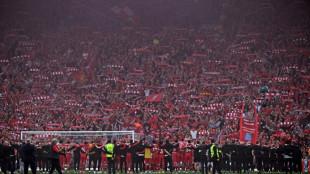 Slot told Liverpool they could win the league at season start: Konate
Slot told Liverpool they could win the league at season start: Konate
-
Spain brought to a halt by huge blackout

-
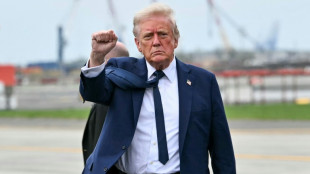 Stock markets mostly higher amid trade talk hopes
Stock markets mostly higher amid trade talk hopes
-
Conclave starts May 7, with cardinals saying new pope must tackle abuse

-
 Massive blackout hits Spain and Portugal
Massive blackout hits Spain and Portugal
-
Ruediger 'must show respect to others' says Germany boss Voeller

-
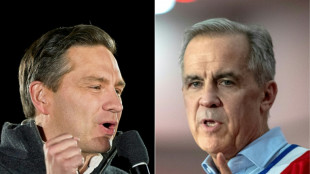 As Canada votes, Trump pushes US takeover plan
As Canada votes, Trump pushes US takeover plan
-
Ten on trial in Paris over 2016 gunpoint robbery of Kim Kardashian
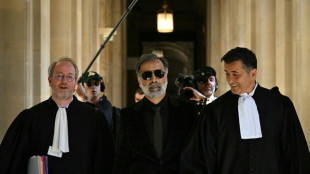
-
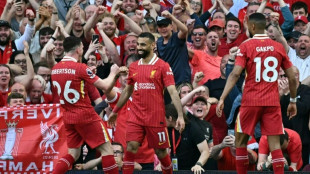 African players in Europe: Salah scores, takes selfies as Reds seal title
African players in Europe: Salah scores, takes selfies as Reds seal title
-
Bangladesh spinner Taijul's 5 wickets trigger Zimbabwe collapse in 2nd Test
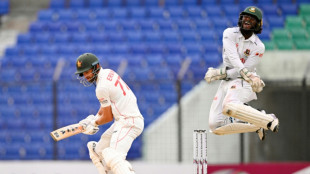
-
 French mosque murder suspect, 21, surrenders in Italy
French mosque murder suspect, 21, surrenders in Italy
-
Mayor Khan keen for London to make Olympics history
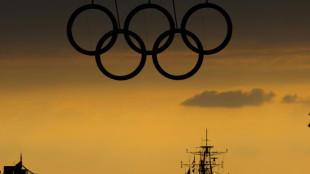
-
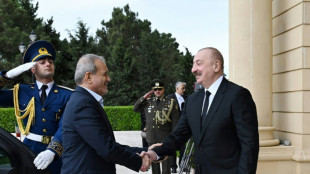 Iranian president visits Azerbaijan as ties warm
Iranian president visits Azerbaijan as ties warm
-
What we know ahead of the conclave

-
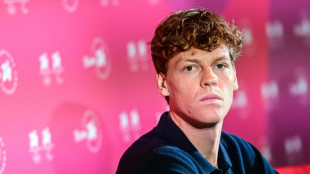 Jannik Sinner launches foundation supporting children
Jannik Sinner launches foundation supporting children
-
Villagers on India's border with Pakistan fear war
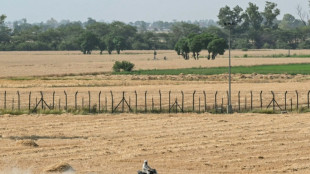

Anti-dopers wrestle with paying informants to break sports' code of silence
Anti-doping organisations are torn over a suggestion from the director general of the International Cycling Union (ICU) to pay sports insiders to inform on their rivals or colleagues.
"We need information from the peloton. We need Radio Peloton," Amina Lanaya told a French newspaper earlier this year.
To fight what she called "a form of omerta" in her sport she said the UCI needed to "infiltrate the peloton, infiltrate certain teams, pay for 'grasses'."
Paid criminal informants are a staple of police work in many countries, but Lanaya's suggestion that sport adopts the same approach has led to debate in the anti-doping community, even as they acknowledge that some of the biggest cases in recent years were broken thanks to tip-offs.
One of the biggest scandals in history, the vast system of institutionalised doping in Russia, gained world-wide attention in 2014 when German broadcaster ARD released a series of documentaries based on information from Vitaly Stepanov, a former an employee of Russia's anti-doing agency RUSADA, and his wife, runner Yulia Stepanova.
"It is essential to have informants," said Damien Ressiot, head of the investigation department at the French anti-doping agency (AFLD), who pointed out that of the 11 violations of anti-doping rules, only one involved testing.
"And on the other ten, we only get them by investigating," he explains.
Those categories include the athlete's whereabouts failures, tampering with samples, possession as well as threats or retaliation against informants.
Yet Ressiot is not convinced that paying informants will work.
"I don't see the point," he says.
Guenter Younger, a former German policeman and Interpol officer who is the head of the investigations at the World Anti-Doping Agency (WADA), agreed.
"I'm not a big fan, to be honest," he told AFP.
- 'None asked to be paid' -
While Younger said some informants are driven by idealism and a desire "for clean sport", Ressiot added "but also sometimes by envy, or for other reasons."
The AFLD and WADA have both created dedicated tip web sites.
"We have a lot of information through this channel," said Ressiot, adding that the AFLD received 80 reports in 2021 on its site.
Younger says that WADA's five-year-old 'Speak Up!' web page has also been highly productive.
He said "none of the informants over the past five years has asked to be paid".
WADA can offer financial aid for "substantial assistance" by informants but, said Younger, these are used more as an expense allowance "for whistleblowers, if they have to travel to a place for example."
The aid is also used to protect and escort athletes caught doping who decide to collaborate.
"This has already happened in the past," says Ressiot.
But, he says, the AFLD has never taken on paid informants.
Younger says handing over cash for tips raises practical questions.
"It would be a problem for me to pay for something without knowing what it will be," he said.
"I would probably ask for the information before knowing if I should pay for it, I would evaluate it and then I would ask for the price."
Other observers support Lanaya.
"There is a very strong omerta in the sports world. Anything that can break it is a good thing," said Pim Verschuuren, who works on sports governance at the French Institut de Relations Internationales et Strategiques
But, he warns, "by creating informants, we will place athletes in risky situations, they will be exposed and perhaps in danger. It must be minimal."
M.A.Colin--AMWN